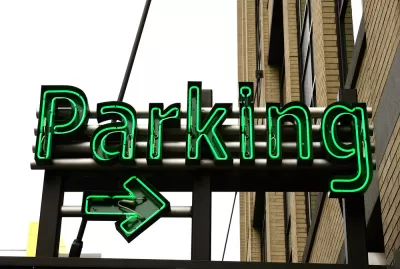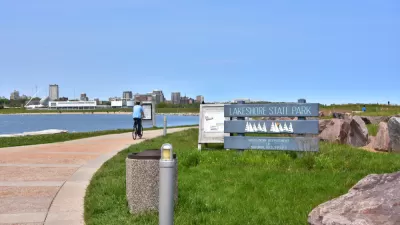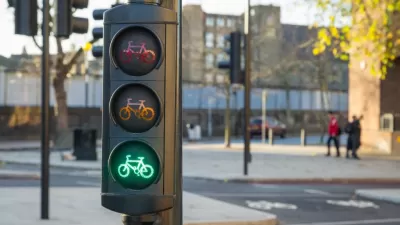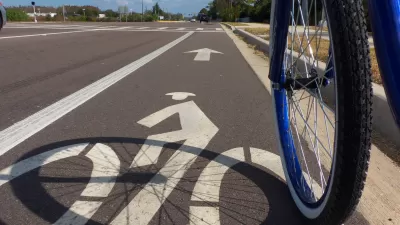With so much to learn just by reading a Wall Street Journal book review of "Bike Battles: A History of Sharing the American Road" by James Longhurst, history professor at University of Wisconsin-La Crosse, imagine what's to learn by reading the book.

 "'Park' became a verb in the early 1900s when there were small greenways—parks—alongside roads, and motorists left their cars there while they shopped or walked, writes reviewer Grant Petersen, a bicycling author himself and bike mail order store owner in Walnut Creek, Calif.
"'Park' became a verb in the early 1900s when there were small greenways—parks—alongside roads, and motorists left their cars there while they shopped or walked, writes reviewer Grant Petersen, a bicycling author himself and bike mail order store owner in Walnut Creek, Calif.
Bike Battles: A History of Sharing the American Road by James Longhurst, Publication Date: April 15, 2015.
Petersen reveals that the pre-auto days of bicycling were rampant with classism and racism.
Bikes were so expensive that only the rich rode—a virtue in the eyes of many, because it allowed showing off and kept out the riff raff. The League of American Wheelmen (now the League of American Bicyclists) wanted bikes to remain high-brow and, in 1894, banned black members...It was a bad start for cycling, and could explain why recreational bike riding among adults in the U.S. is still a mostly white affair.
What's incredible is how quickly the auto changed the American urbanscape. "In the first two decades of the 20th century, roads that had until then been shared by pedestrians, street vendors, cyclists and horse carriages were turned over to cars, making them dangerous for everybody else," writes Petersen. When World War II ended, "our unbridled, auto-obsessed country went nuts designing urban environments and roadways around cars."
However, the best part of the review is Petersen's description of the demographic aspects of bicycling—from a generational perspective—particularly applicable to baby boomers like myself. "After the war, only children rode bikes, so bikes became a symbol of childhood."
No wonder bike riders in the ’50s and ’60s turned to cars as soon as they were of driving age and didn’t look back. Car-favoring laws and road designs have had staying power, and 50 years of car domination have given us generations of motorists who have never known anything else and understandably consider the road their birthright.
That brings up the question of how other generations, such as millennials who are perhaps more comfortable on a bike or bus seat than they are behind the steering wheel of a vehicle they own, will shape roads and the urban landscape.
It was gratifying to find that Longhurst applies his knowledge of bicycling to making the University of Wisconsin campus more bike-friendly. Ditto for the city of La Crosse.
FULL STORY: Grant Petersen on the history of the American bike

Alabama: Trump Terminates Settlements for Black Communities Harmed By Raw Sewage
Trump deemed the landmark civil rights agreement “illegal DEI and environmental justice policy.”

Planetizen Federal Action Tracker
A weekly monitor of how Trump’s orders and actions are impacting planners and planning in America.

Why Should We Subsidize Public Transportation?
Many public transit agencies face financial stress due to rising costs, declining fare revenue, and declining subsidies. Transit advocates must provide a strong business case for increasing public transit funding.

Understanding Road Diets
An explainer from Momentum highlights the advantages of reducing vehicle lanes in favor of more bike, transit, and pedestrian infrastructure.

New California Law Regulates Warehouse Pollution
A new law tightens building and emissions regulations for large distribution warehouses to mitigate air pollution and traffic in surrounding communities.

Phoenix Announces Opening Date for Light Rail Extension
The South Central extension will connect South Phoenix to downtown and other major hubs starting on June 7.
Urban Design for Planners 1: Software Tools
This six-course series explores essential urban design concepts using open source software and equips planners with the tools they need to participate fully in the urban design process.
Planning for Universal Design
Learn the tools for implementing Universal Design in planning regulations.
Caltrans
Smith Gee Studio
Institute for Housing and Urban Development Studies (IHS)
City of Grandview
Harvard GSD Executive Education
Toledo-Lucas County Plan Commissions
Salt Lake City
NYU Wagner Graduate School of Public Service





























